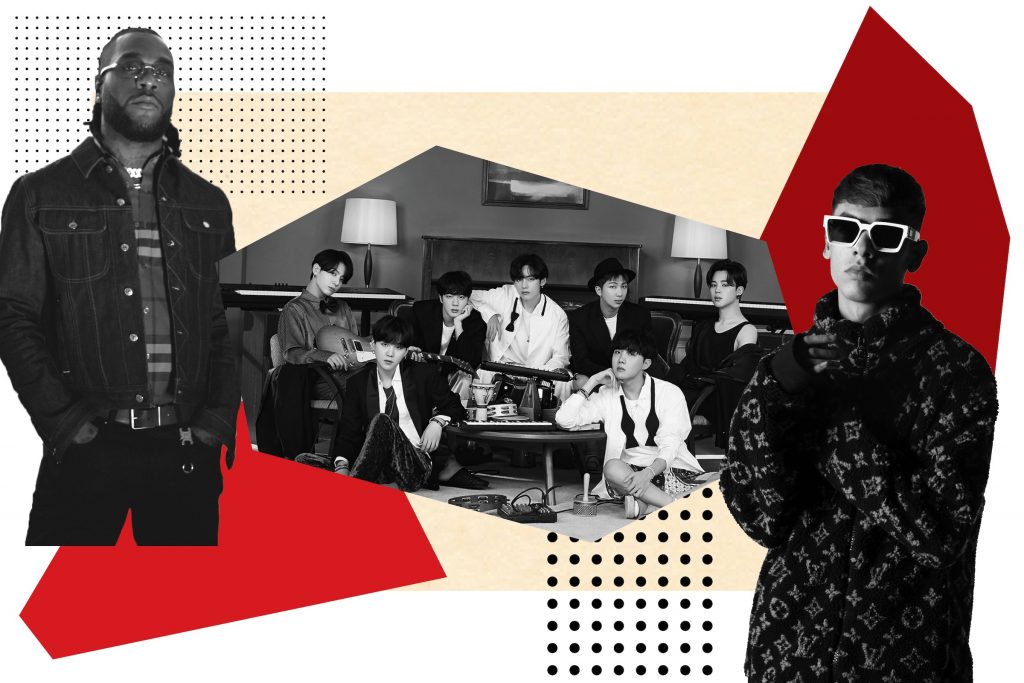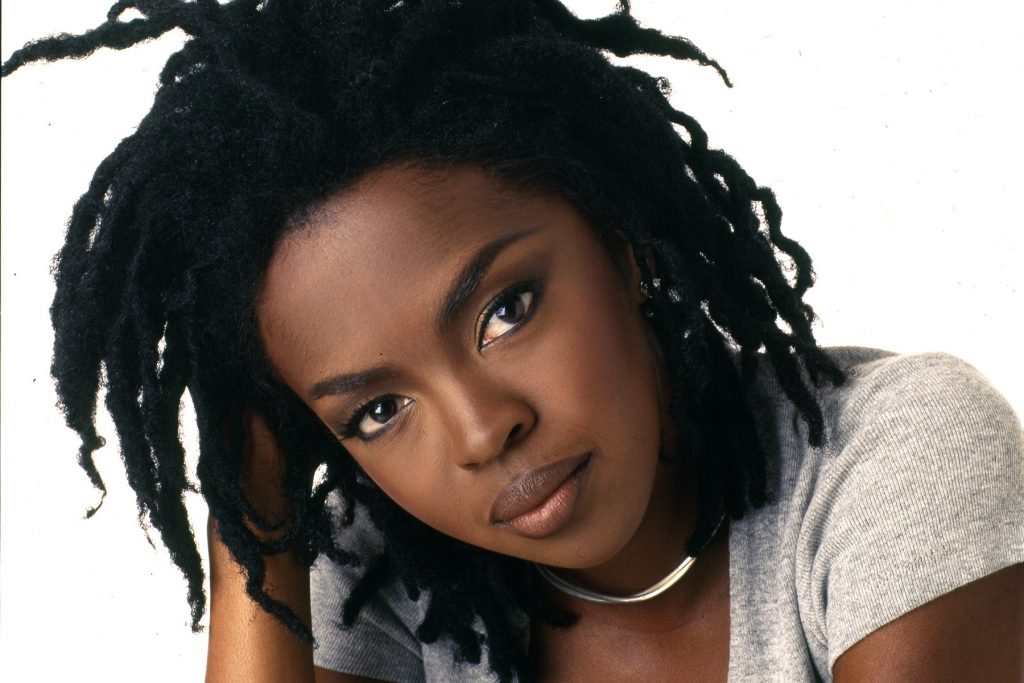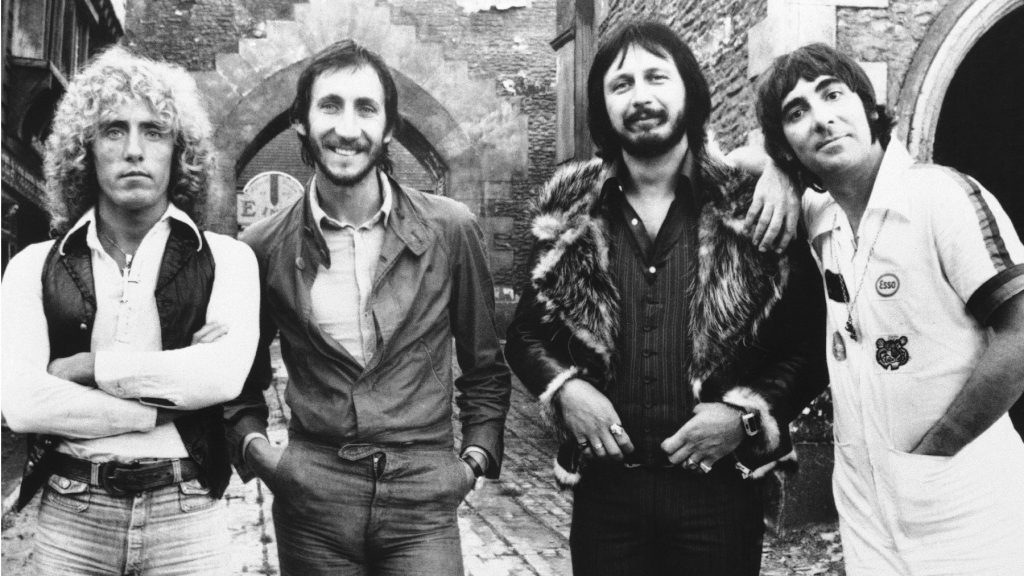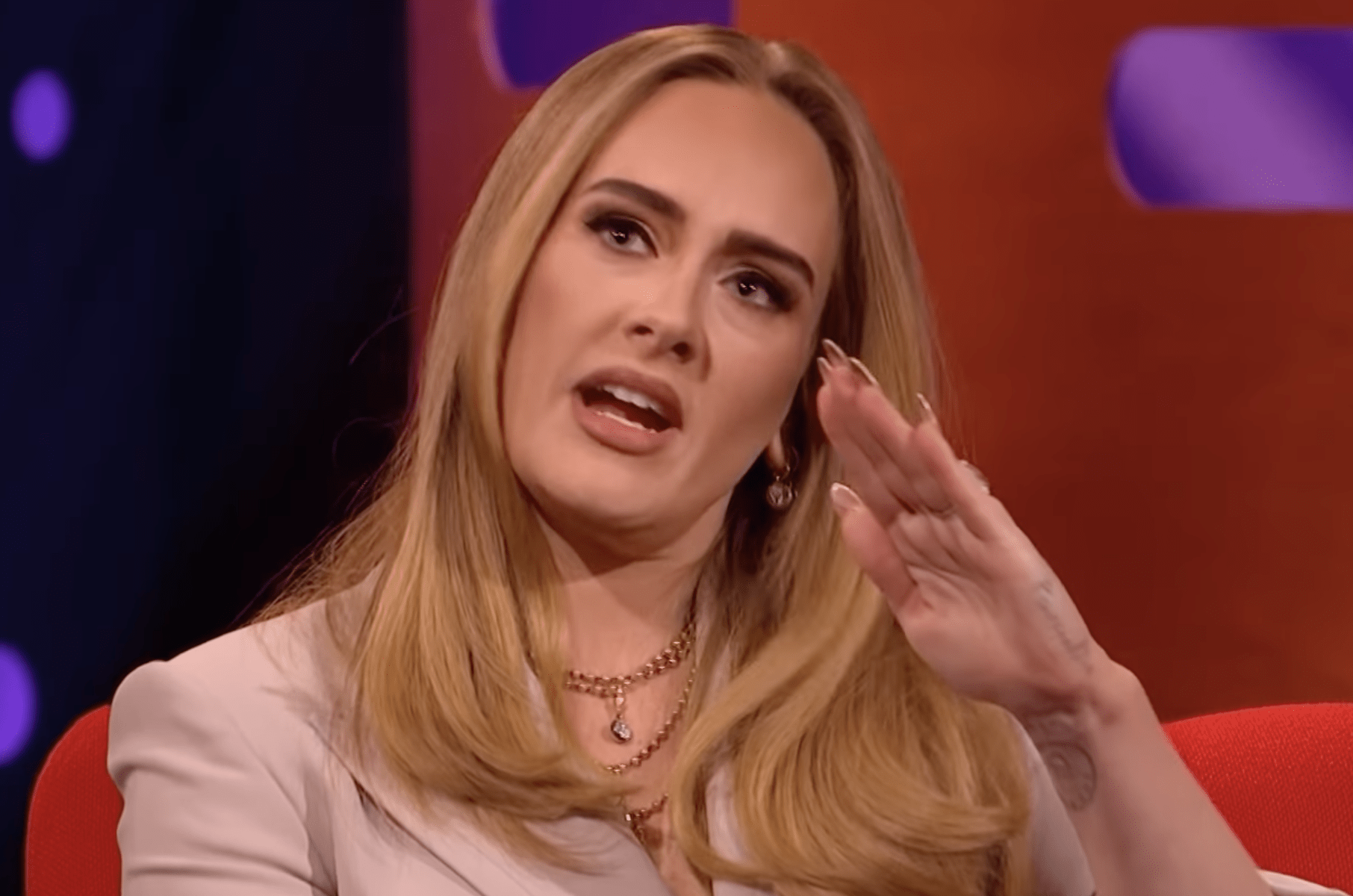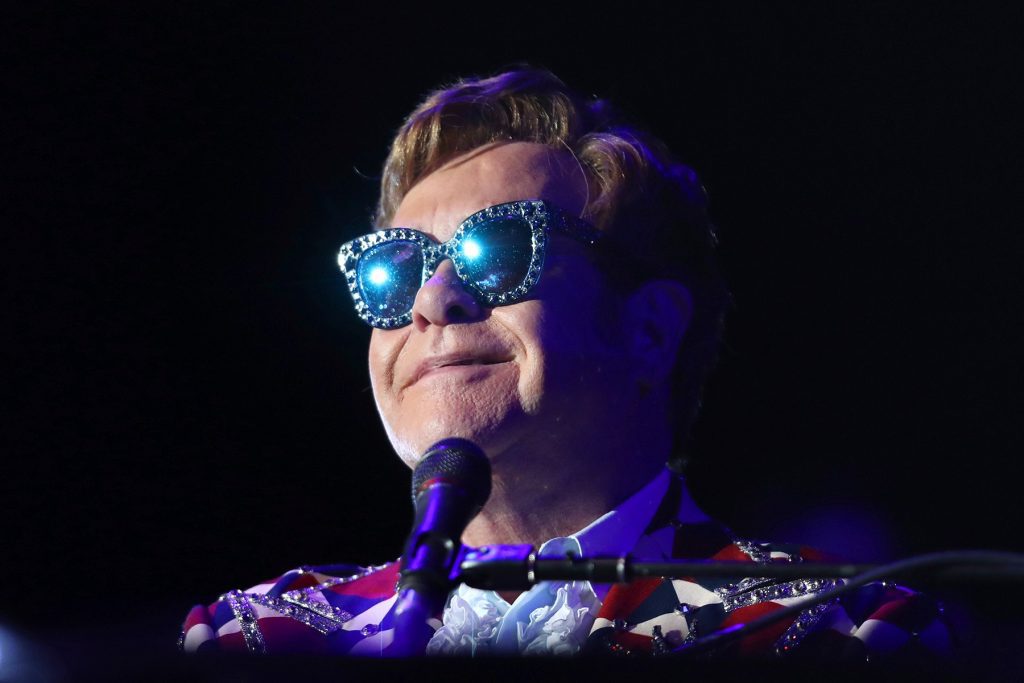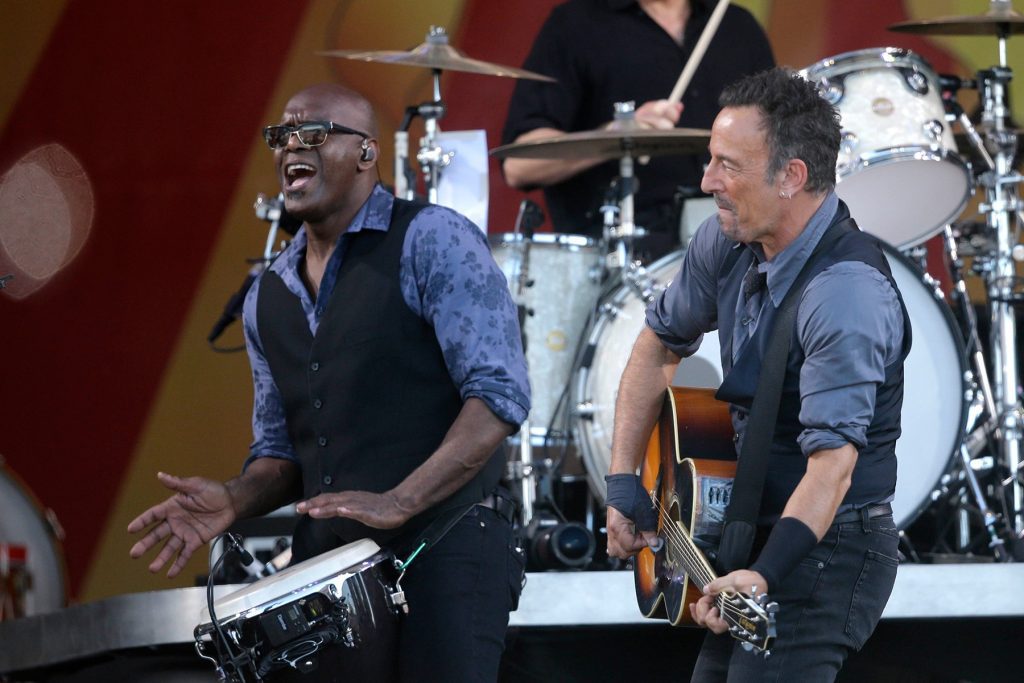
Percussionist Everett Bradley on His Years With Bruce Springsteen, Bon Jovi, and Carly Simon

IndieLand interview series Unknown Legends features long-form conversations between senior writer Andy Greene and veteran musicians who have toured and recorded alongside icons for years, if not decades. All are renowned in the business, but some are less well known to the general public. Here, these artists tell their complete stories, giving an up-close look at life on music’s A list. This edition features percussionist Everett Bradley.
A small army of ace musicians have come and gone from Bruce Springsteen’s E Street Band and Bon Jovi over the years, but only one spent time in the two quintessential New Jersey rock acts: percussionist-vocalist Everett Bradley. He joined up with E Street in 2012 for the Wrecking Ball tour and stayed through the end of the High Hopes run in 2014. Two years later, he brought his talents to Bon Jovi and he’s been there ever since.
It’s all part of a long career that has also included time on the road with Hall and Oates and Carly Simon, studio hours with David Bowie and U2, and stints in the musicals Swing! and Stomp. He was also the bandleader-sidekick on Meredith Vieira’s short-lived talk show. “There aren’t many Renaissance artists around,” he says. “I’m the last one of them that does multiple things like this.”
blogherads.adq.push(function () {
blogherads
.defineSlot( ‘medrec’, ‘gpt-dsk-tab-article-inbody1-uid0’ )
.setTargeting( ‘pos’, [“mid-article”,”mid”,”in-article1″,”mid-article1″] )
.setSubAdUnitPath(“music//article//inbody1”)
.addSize([[300,250],[620,350],[2,2],[3,3],[2,4],[4,2]])
;
});
Bradley phoned up IndieLand from his Harlem apartment to talk about his incredible journey.
How has your quarantine been going?
It’s going well. I have been behaving quite well. I got sick, actually, with the Covid back in March. I was down for about three weeks. It got pretty ugly towards the end where I was on the phone with an ER doctor, trying to decide if I should come in the hospital or not. We ultimately decided not to. It was at a time when the hospitals were totally overrun and just a mess.
It was a virtual call. She watched me walk around my apartment because she wanted to get an idea of my breathing. She felt that I was going to come around. She said, “By tomorrow, I think you’re going to start to come out of this.” Sure enough, she was right. I was feeling much better the next day. I actually think it was the power of suggestion.
The silver lining is you got it early and now probably have the antibodies.
The doctor said I had enough antibodies for all of New York City. I’m not as scared, but I still behaved as though I never had it before.
Being home this long must be a real adjustment for you.
It’s rough. I’m starting to get used to it. Like a lot of people, I went out and got a pandemic dog. She’s a rescue from an Indian reservation in South Dakota.
How is she adjusting to life in the big city?
It was a little rough at first. When I got her, she was nine weeks. But she grew up in a yard around nature, and when she was on a sidewalk she would not walk with me. It took a while for her to get over it. I kept saying, “There is no option here.” She’s doing really well now, though. She’s upstairs playing with her friend, a six-year-old girl that lives upstairs from me and loves her.
I want to go back and talk about your life. What’s the first music that really drew you in as a child?
When I grew up, my older sisters were listening to Motown records all the time, and “The Sound of Philadelphia.” It wasn’t until my uncle brought home a Sly and the Family Stone album that I was sucked in. That was the first moment where I really just started listening to music and trying to figure out how it was built and looking at the people.
I think the album was Stand! What I liked about the band was that it was multiracial. It was multi-sex. All the music was a little protest-like, but there was so much love and hope in it as well. It was all-inclusive. That was what attracted me.
blogherads.adq.push(function () {
blogherads
.defineSlot( ‘medrec’, ‘gpt-dsk-tab-article-inbody2-uid1’ )
.setTargeting( ‘pos’, [“mid-article2″,”mid”,”in-article2″,”mid-article”] )
.setSubAdUnitPath(“music//article//inbody2”)
.addSize([[300,250],[300,251],[620,350],[2,4],[4,2],[3,3]])
;
});
What were some of the early concerts you saw?
My first concert was that band Jody Watley was in, Shalamar. I liked that they were dancing and I liked their energy. I think, for my parents, it was a band they’d allow me to go see. They seemed safe.
When did you start realizing you had talent as a musician?
I think I realized it from my piano teacher from when I was 10. She used to always demonstrate the song that was in the book before I would learn it. She realized I was learning the songs extremely fast. As an experiment, she decided not to demonstrate and just sit down and read. She saw that I was struggling. That’s when she figured out that I had a really, really good ear and I could study and watch her, just that one time, and just sort of pick up really quickly what she was doing.
When did you move over to percussion from piano?
I think it was really marching band in high school. There was just a need. They had a shortage and they needed someone to play tri-toms and they knew that I had keyboard skills, so I played xylophone at one point, too. But it was just filling in.
It wasn’t until college when I was singing in a funk band and there was also a female singer. When I wasn’t singing, they asked me to be doing something. That’s when I started learning congas.
At what point did you start seeing it as a possible career for yourself?
I guess when I was in college. I enjoyed playing in that band so much. I was studying and had a degree to teach music, K–12. Most of that was because both my parents were educators. That was the only way they’d allow me to learn music, that I attach education to it.
But when I was playing in the funk band, I started actually supporting myself. My parents stopped sending me money because I was able to make music as a musician. There was a local theater that hired me to play shows. I started working as a musician before I graduated college.
Where did your career go from there?
After I graduated from college, I stayed in Bloomington, Indiana, for maybe a year. Bloomington is one of those college towns where you can get sucked in and never leave, one of those Midwestern-y college towns. And so I decided to get out before that could happen. I went to L.A. and my first job there was working in the Guitar Center on Sunset Boulevard. That was horrible.
Why?
Because I was working in the percussion department and all the musicians that came in were poor and didn’t have money. My heart went out to them and it was a commission-based position. I couldn’t make money because I was basically giving out instruments to people. And so a buddy of mine was like, “You can’t do this anymore. You’ve got to get a job waiting tables. You’ll have cash in your pocket all the time.”
blogherads.adq.push(function () {
blogherads
.defineSlot( ‘medrec’, ‘gpt-dsk-tab-inbodyX-uid2’ )
.setTargeting( ‘pos’, [“mid”,”mid-articleX”,”in-articleX”,”mid-article”] )
.setSubAdUnitPath(“music//article//inbodyX”)
.addSize([[300,250],[300,251],[3,3],[620,350]])
.setLazyLoadMultiplier(2)
;
});
But then I got a call from my buddy, Shawn Pelton. He’s the drummer on Saturday Night Live. We went to college together. While he was still in Bloomington, Indiana, there was an artist there scouting out bands to maybe put together a touring band for himself. The artist was John Eddie. I guess he was slated to be the new young Springsteen at the time. He had just made his record at John Cougar Mellencamp’s studio.
He was putting a band together to tour and he found Shawn. He asked Shawn if he knew any black guys who sing and play percussion? [Laughs] Shawn said, “Don’t even look any further. I know the perfect person.” And so he called me and was like, “Everett, leave California. You’re coming back and you’re going to move east with me and we’re going to do this gig.” That’s exactly what happened.
What kind of shows were you doing?
We did the Kinks’ last tour as their opening act and we did the Bangles’ last tour as their opening act. That’s how I got exposed to the East Coast. That’s how I met a lot of Jersey musicians since John is from Jersey. That’s when I met Charlie Midnight, Dan Hartman, and Mr. Jon Bon Jovi as well.
What was it like opening for the Kinks and facing a big audience that didn’t know a thing about you guys?
Oh, my God. [Laughs] Well, it’s so interesting. I was just so nervous about doing a job like that for another artist. It took me a while to actually notice that people were out there. I was so obsessed with trying to keep my own shit together and trying to represent and that I sounded really good and that I looked great and that I supported that artist.
It wasn’t until later, when we opened for the Bangles, that I started opening my eyes and looking around and seeing how amazing these crowds were and they were singing all the songs. The legacy that these artists carried, I was finally noticing that.
How did you meet Jon Bon Jovi in the middle of all that?
It was a gig at the Stone Pony. It was a benefit where there were a slew of musicians coming through. He agreed to come up and sit in. I was there playing. I think he may have seen me onstage then. This is around 1990.
When did your off-Broadway work begin?
The fall of 1993. That’s when Stomp came through. They were looking for percussionists that moved well. They went to my buddy Shawn first because they came to town and called all the high-profile musician in town and Shawn already had the SNL gig. We were roommates at the time.
blogherads.adq.push(function () {
blogherads
.defineSlot( ‘medrec’, ‘gpt-dsk-tab-inbodyX-uid3’ )
.setTargeting( ‘pos’, [“mid”,”mid-articleX”,”in-articleX”,”mid-article”] )
.setSubAdUnitPath(“music//article//inbodyX”)
.addSize([[300,250],[300,251],[3,3],[620,350]])
.setLazyLoadMultiplier(2)
;
});
He went, “Hey, Everett, there’s some weird show that’s looking for percussionists that move well. It sounds like some crazy shit. I’m not interested, but do you want to check it out?” I was like, “Sure.” That was it. I went in and auditioned. I played a solo on my ass with my hands and that’s what got me the gig.
How did Stomp change your life?
Oh, my God. Wow. Well, first of all, it’s a British show with a British cast. They were coming to New York for the first time and were looking for two people to be swings because they had never done eight shows a week. They needed some relief, so they hired me and this woman, Allison Easter. They flew us to England to start learning the show. And when it opened, it became a big hit. Then they left me in charge of it. I was there for five years.
The show is based on who you are a person and a musician. It’s not like you come in and you learn a character. They watch you dance. They watch you move and they build your show around your qualities. That was scary, but at the same time, it was exhilarating to me. I took that concept into everything else I’ve done since.
Doing Swing! was a natural outgrowth out of that, but this time you were able to help build a show from the ground up.
Yes. Exactly. It was my first Broadway show experience in New York City. I was thinking, “Oh, this is how theater is done.” I just assumed that wherever I landed, it would be built around my skill set and my qualities. Those are the shows I got hired for because they knew I’d bring my thing to their shows and they wanted it.
You must have learned a lot there.
Swing! was amazing. They had me come in and sing. I got that because I used to sing a lot of jazz in college, so I was singing opposite Ann Hampton Callaway. What was crazy about it is they took me to Colony Records and I was like, “Why are we here?” They said, “We’re looking for songs for you for an opening number.” I was like, “What? The show’s not done yet?” They were like, “No.” I said, “Are you open to original writing?” They said, “Yeah.” And so I collaborated with two friends [Ilene Reid and Michael Heitzman] and brought in a song called “Throw That Girl Around” and that became my opening song.
I see that you played on the song “Seven” from David Bowie’s Hours. Tell me about that.
David wasn’t there. But I was there with the engineer and the producer, Mark Plati. We went to college together. But I was invited to the listening sessions and David was there. That’s how I met him. After that, he was putting a tour together and he had me come in to sing and play. But he ultimately decided that he wanted a female, which was Cat [Russell].
To flash forward a few years, how did you wind up in the Hall and Oates band?
That happened because T-Bone Wolk produced John Eddie’s record [Hard Cold Truth] and he was Hall and Oates’ musical director for many years. They were putting the finishing touches on a Christmas record [Home for Christmas] and needed someone like me to play percussion and sing.
You lasted for six years. What was the experience like? It was your first time on a big rock tour.
Yeah. It was amazing. It was a Christmas show, but after that Christmas show ended they asked me to stay on as a permanent member. It was fantastic. I grew up on “Sara Smile” and all those songs. I felt like every show I was pinching myself. I couldn’t believe I was actually singing with these guys.
blogherads.adq.push(function () {
blogherads
.defineSlot( ‘medrec’, ‘gpt-dsk-tab-inbodyX-uid4’ )
.setTargeting( ‘pos’, [“mid”,”mid-articleX”,”in-articleX”,”mid-article”] )
.setSubAdUnitPath(“music//article//inbodyX”)
.addSize([[300,250],[300,251],[3,3],[620,350]])
.setLazyLoadMultiplier(2)
;
});
They’re such great singers, and the one duo in rock history that actually worked well together.
Yes! They stayed together and they still sound fantastic. I think Daryl is singing better now than he did when he was younger.
Yeah. And the guy is 74 years old.
Yes! He’s killing it. He used to come to me and go, “Hey, Everett, if you hear some crazy shit in the show and you want to sing, go for it.” And then in the song “I Can’t Go for That,” we used to do a riff back and forth. That would mess me up. I’d be like, “I can’t believe I’m actually riffing with Daryl Hall.”
What I love is that they are a singer’s band. It’s close harmony and they are sticklers about it. They move people around on vocal parts just to make sure the sound is right, which is very different than a Jersey rock thing.
Did you have more fun on Broadway or on the road in the Hall and Oates band?
That’s a really good question. I would say that on the road with rock bands, there’s just more change happening. There’s more room for growth and riffing and re-doing and just reacting to audiences. Broadway shows get set in stone and the show is the show. However, I was lucky in Swing! because it was a jazz show and Ann Hampton Callaway argued that because we were jazz vocalists, that we should be allowed to scat freely. They let us.
How was your Carly Simon experience? I love her music, but she almost never tours.
She doesn’t. That stage-fright thing is real. There’s an interesting story that she probably wouldn’t mind if I said … I used to spank her before we went out onstage. [Laughs] I had to spank her hard because it was a distraction from her stage fright. I did it once and it was like I created a monster because there I was, spanking her before every show. All the guys were like, “Dude! Really?” This was at the Moonlight Serenade tour in 2006. She did half standards and the other half was hits.
How did the Bruce Springsteen chapter start?
That’s a really good story. I think it was fall of 2011. I got hired to play a benefit by my friend Bobby Bandiera. I told him I was available and he sent me the songs. They were all Bruce Springsteen songs. I called him back and I said, “Bobby, what the hell is going on? These are all Bruce songs.” He goes, “Alright, I’m not supposed to tell anyone, but Bruce is putting together a benefit to raise money for his son’s scholarship fund at Boston College.”
I learned all the songs. When I got to the gig, they had my percussion set up at the front of the stage, which is a little rare unless you’re leading. Usually I set up next to the drums in the back. I was like, “Bobby, what’s this about?” He was like, “Ah, I just thought it would be fun for him to play with you and have someone to sing with.” I was like, “Really?”
But we did and the soundcheck was, like, whatever. But during the show, Bruce would come over and he’d put his arm around me and we’d share the mic and do percussion together and do dance steps together. And then January 2012, I get a phone call from Bruce’s management asking if I would come in and play with the band. He said that Bruce is considering having a percussionist, but he’s never had one and wants to get a feel.
blogherads.adq.push(function () {
blogherads
.defineSlot( ‘medrec’, ‘gpt-dsk-tab-inbodyX-uid5’ )
.setTargeting( ‘pos’, [“mid”,”mid-articleX”,”in-articleX”,”mid-article”] )
.setSubAdUnitPath(“music//article//inbodyX”)
.addSize([[300,250],[300,251],[3,3],[620,350]])
.setLazyLoadMultiplier(2)
;
});
I said, “I would love to.” They said, “Are you available in three days?” I said, “No. I’m going to Japan with Hall and Oates.” They said, “Can you leave a day later?” I said, “No.” [Laughs] That’s because when I make a commitment, I try to keep it. They said, “Are you sure? This is Bruce.” I said, [sad, resigned voice] “I know.” They said, “OK. Good luck. Maybe we’ll be in touch.”
I said, “OK.” When I hung up the phone, I was like, “Oh, Everett, this is … you fucker.” [Laughs] I was thinking I should call them back. But when I got to Japan with Hall and Oates, I get an email from the management asking me to take a picture of my percussion setup and mail it back. I did that. Then they said, “Call us when you return.” I got back from the tour and I called. They said, “It’s not like Bruce was auditioning percussionists or anything. He was so impressed with your level of commitment that he decided to wait for you.”
Wow.
Right? And when I walked into rehearsals, they had an exact replica of my percussion setup. They wouldn’t send me any songs because they wanted to see what I’d do on the fly because often, if you’ve been to a Bruce concert, he’s picking a sign out in the audience. He wanted to know if I could deal with that off the cuff. It was actually really freeing since I didn’t have to learn anything. I could just do my thing. The first ones we worked on were the new ones from Wrecking Ball.
This must have been new for Max Weinberg. He’s used to being the one percussionist onstage.
It was a big deal. I have to to be honest, I was really nervous. I didn’t want to be in on his territory. He played all those percussion parts on those records. I went to him immediately and I said, “Listen, I know this might be a crazy situation for you. I want you to know that I’m a fan and I fully respect you and your playing. Please, I’d really appreciate any advice you can give me on parts and whatever you think is best.”
Ever since then, we were good. It was a lot of fun. He became a mentor of sorts, especially when I became the musical director for The Meredith Vieira Show.
You were following in his footsteps.
Yeah. Exactly. Bruce got excited about that idea that I was being a bandleader like Max.
blogherads.adq.push(function () {
blogherads
.defineSlot( ‘medrec’, ‘gpt-dsk-tab-inbodyX-uid6’ )
.setTargeting( ‘pos’, [“mid”,”mid-articleX”,”in-articleX”,”mid-article”] )
.setSubAdUnitPath(“music//article//inbodyX”)
.addSize([[300,250],[300,251],[3,3],[620,350]])
.setLazyLoadMultiplier(2)
;
});
To go back a bit, this was a big tour. It was the first tour after Clarence died and Bruce really expanded the band with a horn section, backup singers, and you. It must have taken a while to get it all together in the rehearsals.
Yeah. When I first came in, they had me positioned where Clarence was. It made everyone onstage during rehearsals … I probably shouldn’t be talking about this. I’ll just talk from a personal level. Personally, I knew that and it made me a little uneasy. After about two days, they moved me so I was closer to the backup singers and they moved Soozie Tyrell into his position. Everyone was like, “Phew.” After that, I shared a riser with Roy [Bittan].
What’s it like to be onstage and never know what song is coming next?
[Laughs] You wear Depends. [Laughs] It’s scary, I have to say. It’s scary as hell. The good thing is, you have the most badass bandleader ever in front of you. With him there, you really can’t go wrong. He’s so strong and he was so clear in his communication with us as to what was going on and what we had to do. It was amazing. Plus, you’re with these amazing musicians and it’s such a well-oiled machine. They always had your back.
He doesn’t just do every single song from the albums. He does the B sides. He does all sorts of covers. And he sometimes does alternate versions of the released songs, so you might play “Racing in the Street” one night and “Racing in the Street ’78” the next night.
Exactly. We had to learn all of those. They gave me a list of stuff to learn and I kept a big book that was stashed onstage for me. One of my favorite moments I’ll never forget was when someone held up a sign that read “Do One for Levon Helm” because he just passed. And so Bruce turns around, puts his back to the audience and he starts learning “The Weight.” He’s taking, like, three minutes onstage in front of like 20,000 people!
Of course, he’s the only one that can do something like that and everyone is patiently waiting. Once he pulls it together, he looks up at us all and goes, [gruff Bruce imitation], “OK. I’m gonna do the first verse and the chorus. While I’m doing it, learn it and then come in on the second verse. Got it?” And we’re all like, [terrified voice] “Yes!” [Laughs] And then, like magic, the second verse comes in and the band just goes, like, “Bam!”
I almost wanted to cry because it was so good and everyone was so present and made that happen. That’s when I felt like, “I am in the best fucking band in the world right now.”
I feel like Bruce is always taking the temperature of the audience and he knows what to bring out next to bring the room to a whole new level of insanity, or to bring things down for a bit. He just feels the room the entire night.
The whole night. Because often we’ve had set lists and never touch them. The first 10 songs are just thrown out the window! That’s when we’re all shitting in our pants, but at the same time, we’re invigorated. And he knows that the audience can feel that. We’re all freaking out, but in a good way.
blogherads.adq.push(function () {
blogherads
.defineSlot( ‘medrec’, ‘gpt-dsk-tab-inbodyX-uid7’ )
.setTargeting( ‘pos’, [“mid”,”mid-articleX”,”in-articleX”,”mid-article”] )
.setSubAdUnitPath(“music//article//inbodyX”)
.addSize([[300,250],[300,251],[3,3],[620,350]])
.setLazyLoadMultiplier(2)
;
});
You went right from the High Hopes tour to The Meredith Vieira Show. How did that start?
[Laughs] Well, apparently, Meredith told me that they started by calling nightclubs and managers in town. They were looking for a man of color to lead the band. They said that my name came up three times. They decided to just find me. When they found me, I was fabulously found in Australia on tour with Bruce Springsteen. [Laughs] That’s kind of it. They were almost like, “What?! You’re hired!”
I had a nice conversation with management and I told them when I’d be back in town. I came back in and when I walked into the office, they were all acting like I had the gig already. The question was, “Do you like us, Everett?”
That’s the dream scenario.
Right? It was crazy! It was a little weird because Meredith was rubbing my shoulders and stuff. I was like, “I don’t know you!” But they felt like they knew me and they really wanted me to do this thing, and so I went in and committed to it. The process of that whole thing was really fascinating. Meredith decided that she wanted an all-girl band, so I helped pull that together. I wrote the theme song, too.
It’s a very different skill set you’re drawing from here. You need to lead the band, but also be the sidekick and engage in banter. That’s a whole different deal than playing “Born to Run.”
[Laughs] Exactly. I really enjoyed it. The only thing that was kind of a bummer was the show just didn’t last. For various reasons, it couldn’t get past those two years that those kind of shows need to lift themselves up.
It’s a very competitive landscape and you’re up against Ellen and The View and whatnot. It’s tough.
Right.
Did Max Weinberg give you any advice about how to do a job like that?
Yeah. First of all, he said, “You gotta be yourself and do your thing.” My biggest thing was, “I don’t know how to go about this and negotiate this for myself.” That’s where he really came in. I don’t know if you know this about Max, but he’s a really great businessman. He’s very smart about it and he got me a really good attorney that negotiated my deal. He got me a great, great deal.
blogherads.adq.push(function () {
blogherads
.defineSlot( ‘medrec’, ‘gpt-dsk-tab-inbodyX-uid8’ )
.setTargeting( ‘pos’, [“mid”,”mid-articleX”,”in-articleX”,”mid-article”] )
.setSubAdUnitPath(“music//article//inbodyX”)
.addSize([[300,250],[300,251],[3,3],[620,350]])
.setLazyLoadMultiplier(2)
;
});
If you’re going to do the work, you should be paid for it.
Yeah. Max said that. He said, “It’s a hard job. It’s grueling. It’s cold in the studio and you have early mornings and you have to just be on all the time. Sometimes you don’t get a whole lot of time to rehearse and make things happen. It’s a lot of pressure and you should be compensated for that.”
How did the Bon Jovi period start?
I have a long relationship with him. He hired me to do his solo tour, Destination Anywhere, which was 1997. It was his first solo album and he put a band together for that and called us the Big Dogs. Funny enough, it was Shawn Pelton that got hired for that gig first. And then Shawn said, “You should get Everett to sing and play percussion for you.” That’s how I got it. Shawn has given me so many life-sustaining jobs. It’s ridiculous.
And so I knew Jon back in 1997. Ever since then, he’s kind of kept me in his family. I got invited to parties. I would play acoustic shows with him, which I still do. And I was playing with Richie [Sambora] as well. Richie even called Jon and said, “Can I use Everett for my tour?” And so I ended up doing Richie’s Made in America tour, which was amazing. He is such an incredible musician. Incredible. He really, really pushed me beyond places I thought I could go. In the middle of the show, he’d turn to me and make me sing whole verses that I didn’t know. He was kind of a jerk, but in a good way. Most people push me because they know that I will rise.
Then you joined the Bon Jovi touring band in 2016.
Yes. It was a really interesting time because it was the first tour without Richie [Sambora]. It was Phil [X] that replaced him. Phil had already come in and out of the band anyway. But to start a tour fresh without Richie was new territory for all of them, really.
[Guitarist] John Shanks was there too. He’s been in the fold for a long time as a producer, so it wasn’t that foreign. And they all knew me, but for me to be in that lineup was new. We were kind of all just figuring it out together, which was awesome.
How was the experience different than playing in the E Street Band?
I would say that everything is not as improvised. That is the biggest difference. Jon makes a plan and he sticks to the plan. He doesn’t deviate much. That’s just kind of how he rolls. That’s how he rolls as a business guy, too. It makes sense and it works for him. There’s comfort in that.
He has audibles at the end, but you know what audibles are in the mix. There’s no surprises.
blogherads.adq.push(function () {
blogherads
.defineSlot( ‘medrec’, ‘gpt-dsk-tab-inbodyX-uid9’ )
.setTargeting( ‘pos’, [“mid”,”mid-articleX”,”in-articleX”,”mid-article”] )
.setSubAdUnitPath(“music//article//inbodyX”)
.addSize([[300,250],[300,251],[3,3],[620,350]])
.setLazyLoadMultiplier(2)
;
});
Do you work with Tico Torres in the same way that you worked with Max?
Yeah. Tico has been amazing. Of course, he played percussion on all those records and he was always keeping me in the fold on parts. We always made sure that we could see each other clearly. It’s been really fun. He’s been really, really supportive of me coming in. I think it’s kind of freed him up a little bit.
How was Hall of Fame night when it’s the whole band onstage, past and present?
Oh, my god! Sometimes I really have to pinch myself when I go places. To be a part of that band when they’re being recognized on that level, it was really, really incredible. I was sort of living vicariously through Jon. For him, it was such a milestone that he had crossed. He really celebrated it to the nth degree. It was to the point where he had a private jet basically as a taxi service from New York to Cleveland, bringing his friends and family back and forth. It was awesome.
His wife is an amazing party planner. She went full-stop and just killed the whole weekend with celebrations, in the coolest places and in the coolest ways. It was really great and really sweet to see that all come to fruition.
The fans were really thrilled to see Richie and Alec John Such back onstage after all these years.
Yeah. It was fantastic. I was my first time meeting Alec. It was just fantastic.
Do Bruce and Jon travel in the same ways? Same kinds of hotels and planes and whatnot?
It’s really not that different. They are both band guys. They don’t like to be separated from the band when we travel. There are some people that … I shouldn’t say names, but they travel separately and the band comes later in a bus or a separate plane. These guys like to be with the band so they can hang afterwards and talk about the show. Both of them are like that. Sometimes I wonder if that’s a Jersey sort of cultural thing. It feels like it.
I’m looking at your résumé here. It says you were in the wedding band in Sex and the City 2 and another one in Maid in Manhattan. Which one of those movies created a better fake wedding?
[Laughs] I can’t believe you’re pitting the weddings against each other! You are so bad. They are different! They are both great for different reasons! How is that for an answer.
That’s perfect. Your résumé also notes you can twirl a rifle. Really?
I can! Yes! [Laughs] That’s left over from high school, being in the color guard for a while. I learned how to twirl and I became obsessed with it. It got to the point where I was considering being a part of one of those DCI [Drum Corps International] bands that are crazy in the Midwest. My parents were like, “You want to what?! Man, get out of our faces. You’re going to college.”
How are you doing in the pandemic without live music?
It’s been really interesting not going anywhere, not moving, not learning music, not being able to do what I’ve been doing for the last 20-something years. Like the rest of the world, you start noticing things. “I really should learn how to make that recipe I’ve been wanting to.”
blogherads.adq.push(function () {
blogherads
.defineSlot( ‘medrec’, ‘gpt-dsk-tab-inbodyX-uid10’ )
.setTargeting( ‘pos’, [“mid”,”mid-articleX”,”in-articleX”,”mid-article”] )
.setSubAdUnitPath(“music//article//inbodyX”)
.addSize([[300,250],[300,251],[3,3],[620,350]])
.setLazyLoadMultiplier(2)
;
});
To be honest, I had been moving so much that I started embracing the downtime. I started resting and taking care of myself. It’s been kind of nice. I actually took care of stuff that had been on my list for a long time.
Now I’m getting the urge to make things again. I’ve been completing a Holidelic holiday special. It aired on the 17th. It’s my funk Christmas band Holidelic. I play a character in this band called Papadelic. We’ve been playing live shows. I usually do an East Coast tour every holidays. Because of the pandemic, of course, we can’t. And so I filmed a thing called “Home With Papadelic.” I used my upstate house and put this character in it. I basically showed a day in the life. Also, showing music videos that Holidelic has made over the years.
It’s been good. It’s my first time actually making something that belongs to me. There’s been some other stuff, some SNL stuff. I’ve done some stuff with Jon Bon Jovi, little recordings. But this was the first time I’ve been able to create for Everett, which I’m excited about.
That’s great. And I really think with these vaccines hitting the market, that live music might come back by late summer, early fall. That means you’ll be back onstage playing “Livin’ on a Prayer” and all will be right with the world again.
Hey! I like your positivity.
